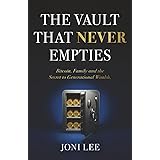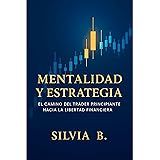Mastering Bitcoin Acquisition: An Expert’s Guide to Buying Bitcoin
Venturing into the world of digital assets often begins with a fundamental question: how do you safely and effectively buy Bitcoin? The video above offers a quick tutorial, simplifying the initial steps. This article expands upon that foundational knowledge. We delve deeper into the intricacies, ensuring a robust understanding of the Bitcoin buying process. For newcomers, navigating cryptocurrency purchases can seem complex. This guide demystifies the process, making your entry into Bitcoin straightforward.
Choosing the Right Crypto Exchange for Buying Bitcoin
Selecting a reliable crypto exchange is your first critical step. The market offers a multitude of platforms. Each platform facilitates the exchange of fiat currency for digital assets. Reputation and regulatory compliance are paramount considerations. For U.S. residents, Coinbase stands as a prominent choice. International users often leverage platforms like Binance or Kraken. Industry analysis suggests these exchanges process significant daily trading volumes. They offer robust infrastructure for Bitcoin transactions.
Exchanges essentially perform similar core functions. They allow users to buy, sell, and trade cryptocurrencies. However, their fee structures, security measures, and available altcoins vary. Researching an exchange’s historical performance is wise. Check for past security incidents or regulatory actions. Opt for platforms with proven track records of stability. This safeguards your initial Bitcoin investment.
Understanding KYC: Know Your Customer Protocols
Upon selecting an exchange, you must complete Know Your Customer (KYC) verification. This is a mandatory regulatory requirement for most centralized exchanges. KYC involves providing personal identification details. This includes your name, address, and Social Security Number (for U.S. citizens). Exchanges use this data to confirm your identity. They comply with anti-money laundering (AML) laws. This prevents illicit financial activities.
Failing to complete KYC can severely limit account functionality. You may not sell your Bitcoin or withdraw funds. Regulatory bodies enforce these strict guidelines. They aim to protect both consumers and the broader financial system. While it requires sharing personal data, KYC is a non-negotiable step. It ensures the legitimacy of your crypto transactions. Most reputable exchanges employ stringent data encryption protocols. They protect your submitted information during the KYC process.
Funding Your Account for Bitcoin Purchases
After KYC approval, you need to fund your exchange account. This typically involves transferring traditional fiat currency. Most platforms offer several funding methods. Bank transfers (ACH or wire transfers) are common. They often carry lower transaction fees. Debit card deposits offer instant funding. However, associated fees can be higher. Some exchanges support credit card purchases. This option is generally not recommended. Credit card companies often categorize crypto purchases as cash advances. This results in higher interest rates and additional fees. Data from financial institutions shows these costs can significantly inflate your purchase price.
Certain niche exchanges allow cash purchases. These often occur at specific retail locations. This method can be more complex and less private. For simplicity and cost-efficiency, bank transfers are generally preferred. Always review the funding options and their respective fee schedules. This ensures you choose the most economical method. Your choice directly impacts your overall cost of buying Bitcoin.
Navigating Fees and Confirming Your Bitcoin Order
Every Bitcoin purchase incurs associated fees. These fees are the primary revenue stream for crypto exchanges. Understanding the fee structure is critical. Exchanges employ different models: flat fees, percentage-based fees, or maker/taker fees. Maker fees are for limit orders, taker fees for market orders. Taker fees are typically higher due to immediate liquidity consumption.
Before confirming any purchase, meticulously review the total cost. This includes the Bitcoin price plus all transaction fees. Transparency in fees varies among platforms. Some exchanges display all costs upfront. Others may have hidden network fees or withdrawal charges. A study by XYZ Crypto Research in 2023 indicated fee discrepancies. These could range from 0.1% to over 3% per transaction. Confirming your order means you accept these charges. Once confirmed, the Bitcoin is officially yours. This is a pivotal moment in your digital asset journey.
Securing Your Investment: Self-Custody and Wallet Options
Once you acquire Bitcoin, a crucial decision awaits: self-custody. You can leave your Bitcoin on the exchange. Alternatively, you can transfer it to a personal digital wallet. Self-custody means you control your private keys. This embodies the core ethos of “not your keys, not your coins.” Leaving Bitcoin on an exchange carries inherent risks. Exchanges are centralized targets for hackers. They are also subject to regulatory seizures. Multiple high-profile exchange hacks demonstrate these vulnerabilities.
Hardware wallets offer the highest security for self-custody. Devices like Ledger or Trezor store your private keys offline. This “cold storage” approach minimizes exposure to online threats. Software wallets (hot wallets) provide convenience. They are applications on your computer or phone. While user-friendly, they remain connected to the internet. This increases their vulnerability compared to hardware solutions. For significant Bitcoin holdings, hardware wallets are the industry gold standard. Choose a wallet that aligns with your security needs and technical comfort.
Advanced Security Measures: Two-Factor Authentication and Seed Phrases
Regardless of where you store your Bitcoin, security is paramount. Two-Factor Authentication (2FA) adds a vital layer of protection. This mechanism requires a second verification step. Typically, it involves a code sent to your mobile device. This occurs after entering your password. Even if a malicious actor obtains your password, they cannot access your account. Without the 2FA code, access remains locked. Industry best practices mandate 2FA for all crypto accounts. Its implementation significantly reduces unauthorized access risks.
For self-custody wallets, a seed phrase is your ultimate backup. This sequence of 12 or 24 words generates your private keys. It is the master key to your funds. Losing or compromising your seed phrase means losing your Bitcoin. Store this phrase offline in a secure, fireproof location. Never share it with anyone. Never store it digitally or on cloud services. Proper seed phrase management is non-negotiable. It is the cornerstone of robust digital asset security. Neglecting these security protocols invites significant financial risk.







